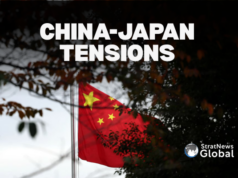
India can block or divert the flow of the three rivers given to Pakistan under the Indus Waters Treaty of 1960. In an editorial in The Times of India, Uttam Sinha, well known scholar and writer on water issues, argues that in the wake of the terrorist attack in Pahalgam, this marks a “decisive shift in India’s strategic approach to Pakistan”.
Delhi’s suspension of the operation of the treaty “reflects a broader redefinition of India’s tolerance for cross-border provocation”, he wrote.
In other words, India will no longer uphold its commitment to ensure uninterrupted flow of the waters of the Indus, Jhelum and Chenab to Pakistan. “The era of business-as-usual diplomacy on water is over.”
Delhi has cited “fundamental and unforeseen changes in circumstances”, as the legal basis for reassessing treaty obligations. Recall that India had, in August last year, invoked Article XII(3) to modify the treaty. Earlier, in Jan 2023, it had formally notified Pakistan urging a fresh look at the treaty. Pakistan ignored both initiatives. Since then the institutional framework of the treaty has stalled, Sinha notes.
“The Permanent Indus Commission is defunct and communication has been reduced to sporadic exchanges between water resource secretaries.”
But the key question centres around India’s ability to build water storage infra particularly on the Chenab, a process that will demand time and resources.
“New projects must be strategically designed to regulate flows in ways that could impact Pakistan agricultural cycles. So far India has limited itself to run-of-the-river projects that generate hydropower without altering natural flows. The suspension of the treaty paves the way for a more assertive water strategy — one that goes beyond security and firmly anchors itself in water sovereignty and national development,” Sinha wrote.
India must fast-track water storage projects in J&K, he urged, since the state has immense untapped potential for hydropower, irrigation and storage. Large scale investment in storage facilities, irrigation systems and hydropower can generate jobs, boost agriculture and deliver energy security.
“India must formally break ground on the Tulbul Navigation Project suspended since 1986. Kashmiris may well be forgiven for their resentment towards the Indus Waters Treaty, as they bear the weight of inaction on the Tulbul project.”
India should also consider redirecting water flows from J&K to Punjab, Haryana and Rajasthan to balance regional water availability. This would strengthen India’s water resilience in the face of climate variability and changing rainfall patterns.
The suspension of the treaty is a warning that New Delhi will no longer be bound by agreements when faced with relentless provocation. India’s sovereign rights and national security will not be perpetually restrained.
Much will now depend on Pakistan. If it seriously addresses India’s long standing concerns both on terrorism and hydropower initiatives, some space for renegotiation may emerge. But that space will not remain open indefinitely.
Thirty eight years in journalism, widely travelled, history buff with a preference for Old Monk Rum. Current interest/focus spans China, Technology and Trade. Recent reads: Steven Colls Directorate S and Alexander Frater's Chasing the Monsoon. Netflix/Prime video junkie. Loves animal videos on Facebook. Reluctant tweeter.




